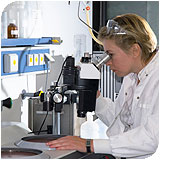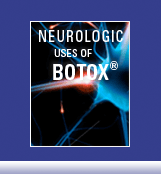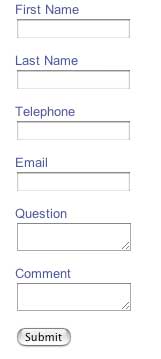 Dr. Loftus has conducted studies to treat patients with Tcell vaccine. The purpose of this page is to give an overview of what Tcell vaccine is, the promise it holds, and the public data for Tovaxin® to date. It is felt that the principle cause of MS attacks in the relapsing forms of MS is caused by autoreactive Tcells that have mistakingly been targeting myelin in the central nervous system. The initial trigger for these Tcells is felt to be a simple environmental antigen such as a virus with Epstein Barr Virus (EBV) and Human Herpes Virus 6 (HHV-6) being most prominently mentioned. The genetic susceptibility to the disease is supported by family studies and twin studies that demonstrate a baseline rate of MS of about .1%, siblings 3-5%, identical twins 25-50%. Genetics is obviously very important but environmental factors are also very important.
Dr. Loftus has conducted studies to treat patients with Tcell vaccine. The purpose of this page is to give an overview of what Tcell vaccine is, the promise it holds, and the public data for Tovaxin® to date. It is felt that the principle cause of MS attacks in the relapsing forms of MS is caused by autoreactive Tcells that have mistakingly been targeting myelin in the central nervous system. The initial trigger for these Tcells is felt to be a simple environmental antigen such as a virus with Epstein Barr Virus (EBV) and Human Herpes Virus 6 (HHV-6) being most prominently mentioned. The genetic susceptibility to the disease is supported by family studies and twin studies that demonstrate a baseline rate of MS of about .1%, siblings 3-5%, identical twins 25-50%. Genetics is obviously very important but environmental factors are also very important.
The Tcell vaccation method currently being developed by Opexa Therapeutics Inc. and previously administered to patients under the care of Dr. Loftus has been developed from Dr. Zhang's work is known as Tovaxin®. Because there are different forms of Tcell vaccination methods that have been tried in the past, it is important to note that while they all share the same name, the method of making the vaccine is so different that they actually have very little in common.
Tovaxin® is produced by identifying autoreactive Tcells made by an individual MS patient against one of 3 proteins in the brain that is part of myelin. These autoreactive Tcells or myelin reactive Tcells are then cloned. The cloned cells are then weakened with radiation to make them unable to replicate. These cells are then injected into the body. The immune system then sees huge numbers of the autoreactive Tcells. The native immune system then responds with antibodies and Tcells against the Tcells in the vaccine. Since the Tcells in the vaccine represent copies of circulating Tcells that are at the cause of MS attacks, the elimination of these Tcells should shut down the MS process.
Data has been presented on two different types of patients. The first public data presented with Tovaxin® was in patients who had failed or were intolerant to conventional therapy. The purpose of this study is to find the correct dose of Tovaxin® to use going forward. Data has been reported on a low dose and middle dose cohort. Only 5 patients are being studied in each group. The myelin reactive Tcells were more fully suppressed in the middle dose cohort. Compared to pretreatment, the number of relapses decreased as well. This data was presented at the combined ACTRIMS (American Clinical Trials and Research in MS) -ECTRIMS (European Clinical Trials and Research in MS) meeting in Greece in September 2005. The treatment was well tolerated with no safety issues being identified.
A second group of patients being studied are those that had previously gotten a simpler version of Tcell vaccination. This data was presented at the Consortium of MS Centers (CMSC) meeting in Phoenix in June 2006. 10 patients who were treated and followed for one year were given only 2 Tcell vaccinations and followed. As a group, the autoreactive Tcells were reduced but some of the cells recovered prior to the end of the year. The group of patients in whom disability improved (4 out of 10) has much greater suppresion of autoreactive Tcells than those that did not show clinical improvement. No safety issues were identified.
A larger phase IIb study was conducted by Dr. Ed Fox. This data compared two groups of MS patients. One group got Tovaxin and the second group got a placebo. These patients were followed for one year. While the Tovaxin group did better than the placebo group, the overall difference did not reach statistical significance. An open label extension study was then terminated.
In January 2011, Opexa announced that they would proceed with a Phase III trial of Tovaxin. Critical for the success of this study is the correct selection of patients. Data from Dr. Fox's IIb study will be used to guide patient selection. Dr. Loftus is no longer involved with Tovaxin research and will not be participating in the Phase III trial.
There are multiple theoretical benefits to Tcell vaccination over conventional therapy. First, the treatment is created for each patient individually so that only those Tcells that need to be eliminated are targeted. Second, the vast majority of the immune system is left intact. Third, the treatment would be easy to administer with only a few subcutaneous shots per year. The downside is whether or not all the pathogenic Tcells can be identified. There is also the possibility that once MS gets started, there are other pathogenic mechanisms that are not dependent of the Tcells.



